"there must have been a time when immense and terrible flying creatures fed on children." From Chapter 1 His father was a pirate. He had black skin and was a pirate. Regardless of his occupation, or maybe because of it, he was charming and warmhearted and loved listening to most anybody who had a story to tell. His mother was a servant to an old Spanish sugar plantation family just outside of San Pedro de Macorís. It was said she had Taíno blood in her veins and never lied. She had long, coffee-colored hair and all she had known her entire life was the plantation house where she worked with her mother, the seas of the Antilles, and her parents. On May 16th, 1916, the American Marines landed on the island and her mother and father were killed in the ensuing guerrilla war waged by the peasant gavilleros against the Marines, who, according to her father, were nothing more than tígueritos hired by greedy American businessmen who wanted to force them off their land to expand the sugar plantations. The night before her parents’ deaths, she had been half-asleep watching an ashy-faced owl perched outside her bedroom window when she heard her parents in the kitchen. She got out of bed. It was nearly midnight. “We should leave now,” her mother said. Her father put his finger to his lips and her mother nodded. “In the morning,” her father whispered. Her mother and father stood in the kitchen and held each other and she noticed there was blood on her father’s pants. She understood then that her father and mother were gavilleros. When her mother spotted her over her father’s shoulders, she smiled and went to her. Her mother stroked her long, coffee-colored hair, just as she had done when she was a child, and told her that the world was the same as it ever was and not to worry. First thing in the morning, the American Marines came to their home. They dragged her parents outside, bound their hands, and made them kneel in the sand. She heard the shots while hiding under their little village house where there were small pools of water and dirt and sand and dirty-ashen seashells. Once in a century, her father had told her, the sea f looded the land and for a time neither existed. Two days later her family’s employers decided to leave for New York City or back to Madrid, she couldn’t remember, but the important thing is they f led to a city that wealthy people have been f leeing to for centuries. The last thing they told her before speeding off in a taxi was that the Antilles were brutal and she was one of the last of a brutal race. She thought of her mother, who had worked for the Spanish family for nearly thirty years. She was sixteen. She didn’t want to go home, so she lived alone in the plantation house for two months, wandering from room to room, eating what was left in the kitchen, cleaning as she had done before, and sleeping for days at a time on a bed that had once belonged to a queen from the House of Bourbon. One afternoon, she packed her clothes and left the plantation house. She headed west, toward Santo Domingo, sometimes walking for long stretches at a time along the coast which was dotted with estates and villages without names (or rather names she had never known) and sometimes riding in the back of a cart driven by a sugar worker who understood without saying so that she was the daughter of murdered gavilleros. For five weeks she wandered the streets of Santo Domingo, which were like the streets of a labyrinth, and ate fish and bread scraps at the market. At night, she slept on park benches and dreamed of future civilizations and an endless seabed full of strange luminescent creatures. At the end of five weeks, she met an American in the market who said he was trading with the gavilleros and the American Marines. She didn’t know why, but she told him the story of how the American Marines had killed her parents. He listened without saying a word. When she was done, he said that he was really a pirate. He said that he gave the gavilleros a deep discount and sold shoddy equipment to the American Marines at high prices. He was making money hand over fist. He apologized for talking so much and then he said she was beautiful. He said he had never seen a more beautiful woman in the Caribbean than her. She told him that his Spanish was good, if a little outdated. He said that he also spoke French and some Arabic. The pirate studied her face for a moment and then said he could get her on a ship that would take her to New Orleans. She shook her head. “Why not?” asked the pirate. “Americans are greedy tígueritos,” she said, “they’re shit.” “And me?” “I don’t know yet. Maybe you’re shit. Maybe you’re not shit.” Still, she thought about her prospects on that occupied island and decided to leave Santo Domingo. On the ship voyage she met a boy who looked out of place. He had deep, sky-black eyes. When she asked the boy where he was from, he said he was from nowhere. “So, you’re an orphan,” she said. “An orphan,” he said and smiled politely. “Like me,” she said. Like everybody, she thought. Orphans are all the world really has left. For four days, she lived on the deck of the ship and slept near the orphan boy. She listened as he talked about war and mechanical soldiers and an eternal library that he would one day discover and never leave. He’s mad, thought the servant girl. He spoke Spanish well enough, but sometimes he sang in a language that she didn’t understand. The songs were like a melismatic trance. One morning, in the middle of a song, he stopped singing and told her that the ship was entering the eye of the Gulf of Mexico. “How do you know where the eye is?” she asked the boy, teasing him. “Just look,” he said and shrugged. The sea was deep blue and alien and as vast as the sky. She imagined that in the distant future the end of the world would have its origins there and for some unknown reason this put her at ease. When the ship arrived in New Orleans, the pirate was waiting for her. A few days later, he asked for her hand in marriage and she said yes. On April 7th, 1920, Maxwell Moreau was born in a one-room apartment near the Barracks Street Wharf. His mother labored for seventeen hours and during painful bursts of activity she squeezed her eyes shut and tried to focus on the smells of coffee and bananas and boiled crawfish and the blows and whistles of faraway ocean liners. This was something, she thought, that all mothers giving birth in New Orleans probably did. When Maxwell Moreau finally came out, the pirate knew that his son would not be a pirate like him, spending his life on the surface of the sea, a loud and violent sea that swelled with creatures and myths and drove men to early deaths or, worse, to an asylum. He swore to it and told his wife that their son had ochre eyes, which were the pigment of earth. The baby Maxwell Moreau cried and cried and his mother held him to her breast and whispered son et lumière, which was something her husband had taught her to say in French and which meant sound and light and was everything the earth wasn’t. The Dominicana and the pirate soon bought a home on Melpomene Avenue. Occasionally, the pirate worked for a wealthy Creole smuggler, often for long periods of time at sea or by river and then by marsh in order to help him hide jugs of Cuban rum in the trunks of cypress trees or guard him as he tried to strike deals with Isleños, laughing or rather pretending to laugh, which was a type of threat, at least according to the pirate who listened to most anybody with a story to tell, especially an inscrutable Isleño. He might as well have pistols for ears and a shotgun for a tongue, he might as well start a gang war, the pirate once told his wife, but he still went and worked for the wealthy Creole smuggler and she still saw him off and waved as he boarded a motorboat. Sometimes, when the wealthy Creole smuggler turned his back to the pirate, he saluted him in mockery of the United States Navy. Then, more often than not, the Dominicana stood and chatted with the wealthy Creole smuggler’s wife in the lilting heat and saunter of the Louisiana sun and watched the trill of fishing boats and egrets drift over the Mississippi River as if they were comets lost in the creation of things. At three, Maxwell Moreau began to wander. He liked sound and light and he followed it everywhere like how the ancient Hebrews followed celestial clues and iconographic fever dreams in the desert. One day a hornet entered the house on Melpomene Avenue and stung Maxwell. He didn’t cry. In fact, when the hornet flew out the back door and into a garden of sunflowers, Maxwell followed it. The hornet flew into another yard and then another before finally landing on a tree. A dog with a half-black muzzle was chained up to the tree and when it saw Maxwell it began to bark. Maxwell thought that the dog was even more interesting than the hornet. He walked over to the dog, but stopped just short of the length of the chain. The dog barked and barked and Maxwell smiled and smiled. He teased the dog and because Maxwell was canny like Sisyphus he eventually figured out how to untie the dog without the dog biting him. The dog disappeared for some time and Maxwell waited. Just before dusk, the dog returned and lay down near the tree. Then Maxwell lay down near the dog with his body pressed against the earth, a pulsating earth with heartbeats, which were the dog’s heartbeats, and tremors, which were the tremors of the City, and murmurs, which were subterranean rivers slipping into the lower Mississippi. He then slept in complete peace, and this is how his mother found him. Ages ago, she thought as she picked up her sleeping son and held him close, as close as she ever had, the world must have been covered with abandoned or lost children lying on the earth. She then imagined in horror that a prehistoric f lying creature must have fed on these children. Even though she knew that those kinds of creatures must be extinct, she still imagined that one had been circling vulture-like for her child and that she had arrived just in time. She had no idea where this absurd fear came from and when she returned home with her child she immediately told her husband. He said that her fears were reasonable. He said that there must have been a time when immense and terrible flying creatures fed on children. He said that there might even be a few of the monsters left somewhere in the world, maybe in India or South America. Of Imaginary Books and The Labyrinth of Catastrophes |
Archives
June 2024
Categories
All
|
Donate and Make Literature Happen
is published by the Somos En Escrito Literary Foundation,
a 501 (c) (3) non-profit, tax-exempt corporation. EIN 81-3162209

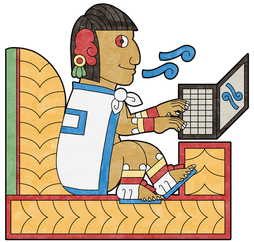
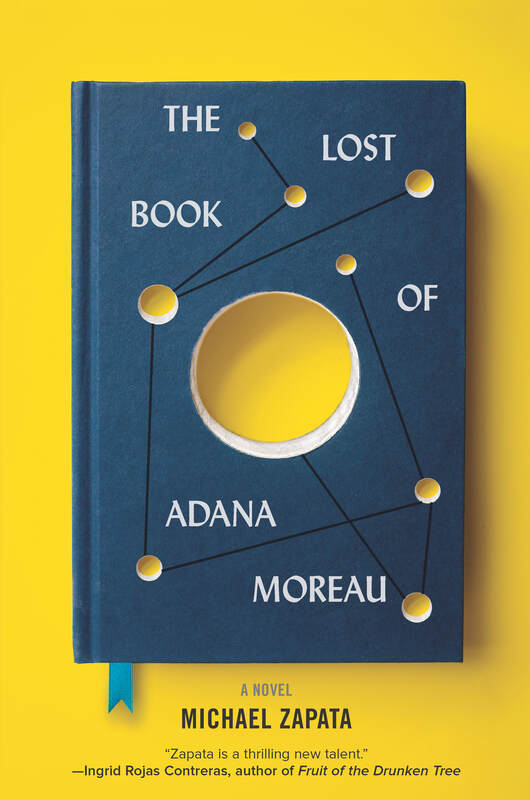
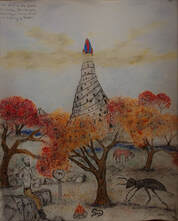
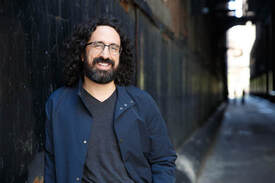
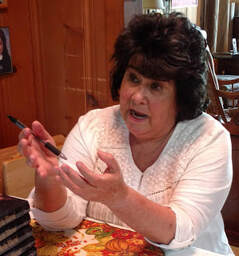
 RSS Feed
RSS Feed